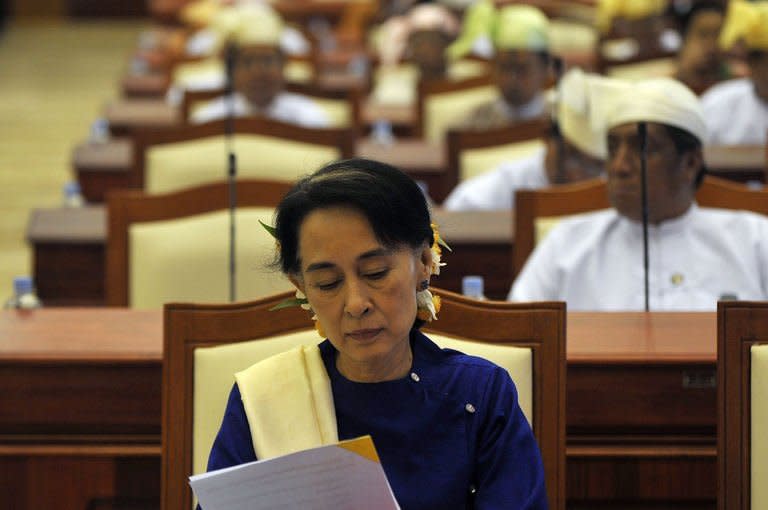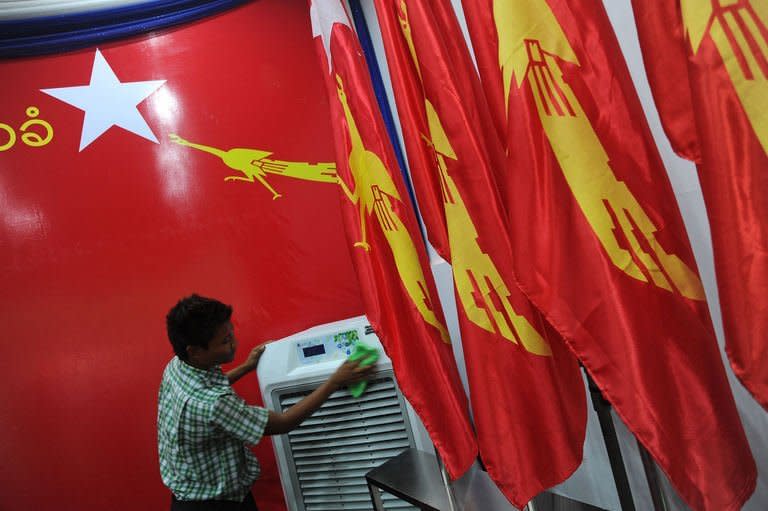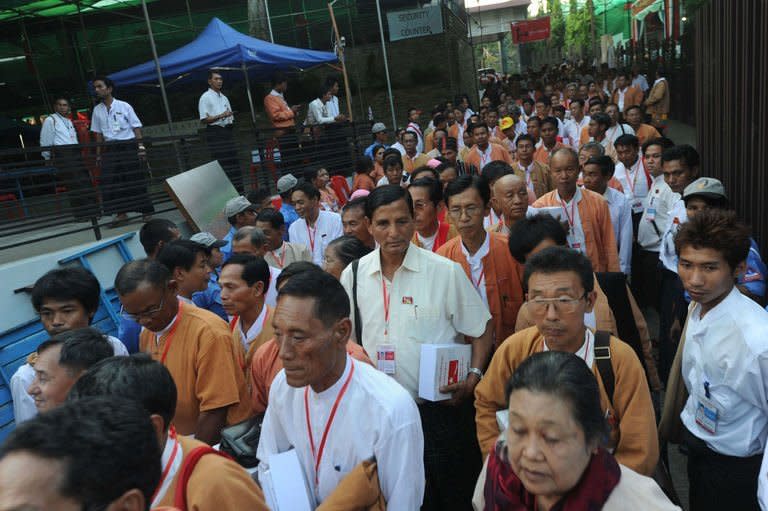Suu Kyi to address party congress
Myanmar's Aung San Suu Kyi was set to address her party during its historic congress Saturday as the once-banned opposition seeks to revamp its leadership and eyes its first chance at power in 2015 polls. The Nobel laureate's National League for Democracy (NLD), politically inexperienced but hugely popular in a country emerging from years of military rule, is widely expected to win the next election, if it is free and fair. Suu Kyi, whose personal sacrifice and long spells of house arrest have underpinned her party's success, is tipped to remain chairman in a leadership vote on the second day of the NLD's maiden conference in Yangon. The 67-year-old has not ruled out ambitions of becoming president, but a constitutional rule now bars her from the role as she was married to a Briton and has two sons who are foreign nationals. "You don't have enlightened voters -- it is personality -- so come 2015 the NLD is going to win and Aung San Suu Kyi clearly has the opportunity to become the next president of our country," said one Yangon-based analyst who asked not to be named. The congress is the latest sign of the dramatic changes seen in Myanmar since a quasi-civilian regime, led by former general Thein Sein, took power in 2011, ending years of isolation and heralding a flood of aid and investment. The road outside the NLD conference was lined with fluttering red party flags, while members of the youth wing of the group wore official armbands, another sight unthinkable until recently in a country where Suu Kyi and her colleagues were viewed with deep fear and animosity by the junta. An estimated 850 representatives will attend the three days of talks that the party has said are aimed at redefining the NLD leadership. But it was unclear whether the congress would bring sweeping change, and there was an air of secrecy on the first day with media refused permission to enter. The NLD faces concerns that its ageing hierarchy -- dominated by veterans of the democracy struggle -- is unwilling to cede power to an eager younger generation. Some experts also question whether the opposition is ready for the challenges of running the impoverished nation, which include building basic infrastructure, kick-starting the economy, redrawing the legal system and reviving poorly funded health and education sectors.




